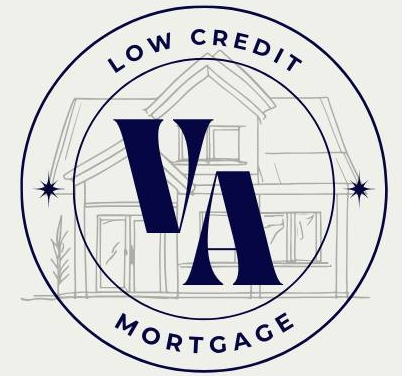How to Get a Mortgage Loan Using VA Disability as Income in 2025: Your Complete Guide
If you’re a veteran receiving VA disability benefits and you’re thinking about buying a home in 2025, you’re in a strong position to secure a mortgage. VA disability income can be used to qualify for a mortgage, including VA loans, but there are a few steps to understand to maximize your chances of getting approved. This article will cover how you can use your VA disability income to qualify for a mortgage, the types of loans available, and the best strategies to increase your approval odds.
We’ll also guide you through the specifics of how VA disability income fits into your overall debt-to-income ratio, how to work with VA-approved lenders, and how you can access expert advice from sources like Forever Home Financing, HUD.gov, and Low Credit VA Mortgage to help you throughout the process.
What Is VA Disability Income?
VA disability benefits are paid to veterans who are disabled as a result of their military service. These benefits are considered a reliable source of income by lenders, especially when it comes to mortgage applications. The VA Disability Compensation (often called VA disability) is a tax-free, monthly payment to veterans who were injured or became ill during their time in service.
This income can be crucial when it comes to buying a home because:
1.It is tax-free, making it an attractive form of income for lenders.
2.It can be long-term and reliable, offering a stable financial foundation.
3.It is considered non-taxable income, which means it won’t be subject to federal taxes.
Can VA Disability Be Used as Income for a Mortgage?
Yes, VA disability income can be used to qualify for a mortgage, and it is increasingly recognized by lenders as a reliable and steady source of income. Whether you’re applying for a VA loan (the most common loan type for veterans) or another type of mortgage, your disability income can be considered when determining your debt-to-income ratio (DTI) and overall ability to repay the loan.
How VA Disability Income Affects Your Mortgage Application
When using VA disability benefits as income for a mortgage, lenders consider it the same as regular income, with some notable exceptions:
1.Non-taxable income: Since VA disability compensation is not taxable, it is often considered as higher than the amount you actually receive in your bank account. Lenders typically add back the amount you don’t pay in taxes, which can be beneficial in calculating your ability to repay a loan.
2.Permanent and stable: Since VA disability compensation is usually permanent and doesn’t fluctuate, it can help you qualify for larger loan amounts, as lenders are more confident that your income will remain stable.
3.Income verification: Lenders will require proof of VA disability income. This typically involves providing documentation such as your VA disability award letter or bank statements showing regular deposits.
Types of Mortgage Loans for Veterans in 2025
Several types of mortgage loans are available to veterans using VA disability income. The most common loan programs for veterans are VA loans, but there are also conventional loans, FHA loans, and USDA loans available, each with unique benefits. Let’s take a look at these options in detail.
1. VA Loans
A VA loan is a mortgage loan guaranteed by the U.S. Department of Veterans Affairs and is one of the most popular options for veterans. VA loans are specifically designed for eligible veterans and active-duty military personnel and offer significant advantages:
•No down payment required: You can finance 100% of the home’s value.
•No private mortgage insurance (PMI): This can save you hundreds of dollars per month.
•Lower interest rates: VA loans typically offer lower interest rates than conventional loans.
•Lenient credit score requirements: While there is no official minimum credit score requirement, most lenders look for a score of at least 620.
VA disability income can be used to qualify for a VA loan, and it helps lower your debt-to-income ratio (DTI). Your DTI is a measure of your monthly debts relative to your income, and a lower DTI makes you a more attractive borrower.
2. Conventional Loans
While conventional loans are not backed by the government, they are still a viable option for veterans who receive VA disability benefits. The key benefit of a conventional loan is that it can be used for a wide range of properties, including second homes and investment properties, whereas VA loans are primarily for primary residences.
•Down payment requirements: A conventional loan typically requires at least 3-5% for a down payment.
•PMI may be required: If you put down less than 20%, you’ll likely have to pay PMI.
•Credit score requirements: Conventional loans often require a minimum credit score of 620 or higher.
Veterans with VA disability income can still use it to qualify for conventional loans, but lenders may place more scrutiny on your credit score and overall financial profile compared to a VA loan.
3. FHA Loans
An FHA loan is a government-backed mortgage designed for low-to-moderate-income borrowers who may have less-than-perfect credit. FHA loans require a down payment of 3.5% and have more lenient credit score requirements than conventional loans.
•Lower down payment: As little as 3.5% of the purchase price.
•Lower credit score requirement: FHA loans can often be approved with a credit score as low as 580.
•PMI required: FHA loans require mortgage insurance, which adds to your monthly payment.
If you have a low credit score but still receive VA disability income, an FHA loan can be a great option to explore. While it’s not as advantageous as a VA loan, it can still help you get into homeownership.
4. USDA Loans
If you’re purchasing a home in a rural area, a USDA loan might be a good option. These loans are backed by the U.S. Department of Agriculture and are intended to help low- and moderate-income individuals purchase homes in rural or suburban areas.
•No down payment required: Like a VA loan, you don’t need to make a down payment.
•Flexible credit requirements: While a 620 credit score is typical, USDA loans are often more forgiving than conventional loans.
While not specifically for veterans, USDA loans can still be an option if you’re purchasing in an eligible area and meet the income and credit criteria.
How to Qualify for a Mortgage Using VA Disability in 2025
Qualifying for a mortgage using VA disability income involves several steps, but it is manageable if you’re prepared. Here’s what you need to do:
1. Ensure You Meet VA Loan Eligibility Requirements
To qualify for a VA loan, you must meet basic eligibility criteria. Here’s an overview:
•Service requirements: You must be a veteran, active-duty service member, or eligible surviving spouse. Active duty personnel can typically apply for a loan after serving 90 consecutive days, while veterans need to have served a minimum of 90 days during wartime or 181 days during peacetime.
•Certificate of Eligibility (COE): You need to obtain a COE from the VA to prove your eligibility for a VA loan. You can get this directly from the VA or through your lender.
For more detailed eligibility requirements, visit the VA’s official website at HUD.gov.
2. Gather Your Documentation
When applying for a mortgage, you’ll need to provide documentation to verify your income and creditworthiness. For VA disability income, you should provide the following:
•VA disability award letter: This letter will show the amount of your monthly disability compensation.
•Bank statements: Your lender will want to see bank statements showing the regular deposits of your VA disability income.
•Tax returns: If applicable, you may need to provide tax returns for the past couple of years.
•Credit report: Your credit report will help determine whether you qualify for the loan and at what interest rate.
3. Choose the Right Lender
Not all lenders offer VA loans or are familiar with the intricacies of using VA disability income as qualifying income. When looking for a lender, choose one with experience in VA lending, such as Forever Home Financing or Low Credit VA Mortgage. These lenders specialize in helping veterans secure home loans and understand how to use VA disability income to qualify.
You can visit Forever Home Financing and Low Credit VA Mortgage for personalized assistance with the VA loan application process.
4. Know Your Debt-to-Income (DTI) Ratio
Your DTI ratio is a crucial factor in determining how much you can borrow. It measures your monthly debts (including your future mortgage payment) relative to your income. Lenders typically prefer a DTI ratio under 41% for VA loans, but this can vary depending on other factors, such as your credit score and assets.
Using VA disability income to lower your DTI ratio can make it easier to qualify for a loan. If you have other sources of income (such as a spouse’s income or rental income), be sure to include those as well.
Tips to Increase Your Chances of Approval
1.Improve Your Credit Score: While VA loans are more forgiving of lower credit scores, improving your credit score can help you qualify for a better interest rate.
2.Reduce Your Debt: Paying down credit cards or loans before applying for a mortgage can lower your DTI and increase your chances of approval.
3.Save for Closing Costs: While VA loans don’t require a down payment, you may still need funds for closing costs. Be prepared for these expenses.
4.Work with a VA-Experienced Lender: Lenders like Forever Home Financing and Low Credit VA Mortgage can guide you through the application process and ensure you’re using your VA disability income to its full advantage.
Conclusion
Using VA disability benefits as income for a mortgage is a smart strategy that can help you achieve homeownership. Whether you’re applying for a VA loan, FHA loan, or another type of mortgage, your disability income is an asset that can improve your approval odds.
With the right preparation, you can navigate the mortgage process with ease and secure the financing you need. If you’re ready to explore your options, Forever Home Financing and Low Credit VA Mortgage are excellent resources to help you get started.
For more detailed information about VA loans, visit HUD.gov and Forever Home Financing for personalized guidance tailored to your needs.

